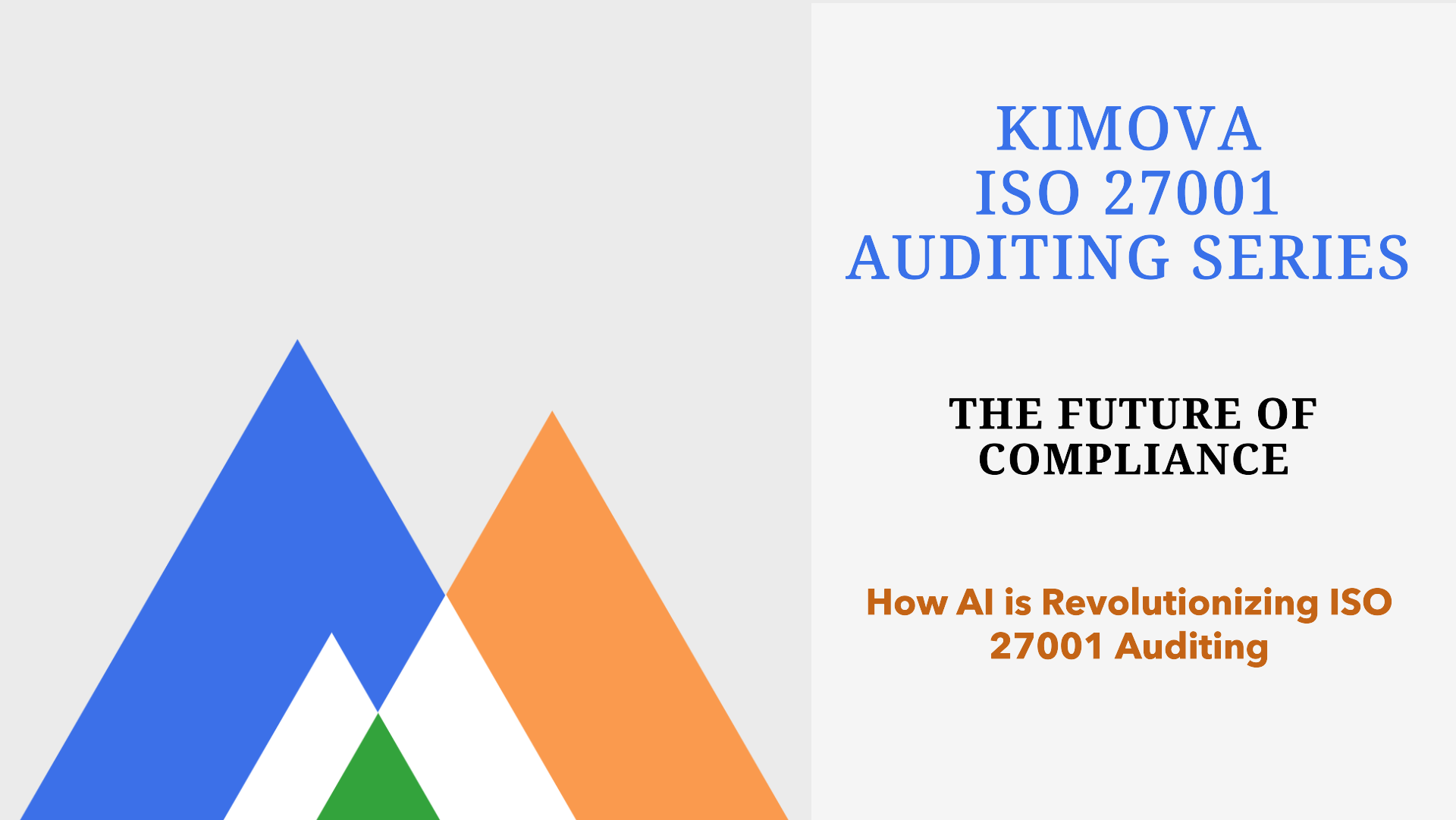The Future of Compliance - How Kimova AI is Revolutionizing ISO 27001 Auditing

In today’s fast-paced digital landscape, organizations must navigate a complex web of regulations and standards to ensure the security of their information systems. Among these, ISO 27001 stands as a cornerstone, providing a framework for managing information security risks. However, the traditional approach to ISO 27001 auditing is time-consuming, resource-intensive, and often prone to human error. This is where Artificial Intelligence (AI) steps in, transforming the way audits are conducted and compliance is achieved.
The Challenges of Traditional ISO 27001 Auditing
ISO 27001 requires organizations to systematically examine their information security risks, implement controls, and undergo regular audits to maintain certification. The manual process of reviewing documents, assessing controls, and ensuring compliance can be daunting, especially for large organizations with complex IT infrastructures. Auditors often spend countless hours combing through policies, procedures, and evidence, making the process not only laborious but also susceptible to oversight and inconsistency.
Enter AI: The Game-Changer in ISO 27001 Auditing
AI, with its ability to analyze vast amounts of data and identify patterns, offers a revolutionary solution to these challenges. TurboAudit, Kimova AI’s flagship tool, leverages advanced AI algorithms to streamline the ISO 27001 auditing process. Here’s how:
-
Automated Document Analysis: TurboAudit scans and analyzes company documents, automatically mapping them against ISO 27001 standards. This significantly reduces the time auditors spend on manual document review, allowing them to focus on areas that truly need attention.
-
Gap Identification: One of the most critical aspects of an ISO 27001 audit is identifying gaps between an organization’s practices and the standard’s requirements. TurboAudit’s AI engine excels at this, quickly pinpointing discrepancies and providing actionable insights for remediation.
-
Continuous Monitoring: Compliance is not a one-time task but an ongoing responsibility. TurboAudit enables continuous monitoring of compliance status, alerting organizations to potential non-conformities before they become significant issues.
-
Enhanced Accuracy: By minimizing human intervention, TurboAudit reduces the risk of errors and inconsistencies. Its AI-driven approach ensures a thorough and consistent audit, leading to more reliable compliance outcomes.
The Future of AI in ISO 27001 and Beyond
As AI continues to evolve, its role in ISO 27001 auditing will only grow more significant. Future iterations of tools like TurboAudit will likely incorporate machine learning capabilities, allowing them to learn from past audits and continuously improve their accuracy and efficiency. Additionally, AI’s potential extends beyond ISO 27001, with applications in other compliance areas such as GDPR, HIPAA, and SOC 2.
Conclusion
The integration of AI into ISO 27001 auditing marks a paradigm shift in how organizations approach compliance. Tools like TurboAudit are not just making the audit process faster and more efficient; they are redefining the very nature of compliance itself. As organizations strive to stay ahead in an increasingly regulated world, embracing AI-driven solutions will be key to maintaining their competitive edge.
Stay tuned for our next article in this series, where we’ll dive deeper into the role of AI in cybersecurity and how it complements ISO 27001 in safeguarding your organization’s digital assets.
#AIinCompliance #AIinAuditing #ISO27001 #Cybersecurity #ArtificialIntelligence #ComplianceAutomation #KimovaAI #TurboAudit #DataSecurity #InfoSec #ContinuousCompliance #AuditTech